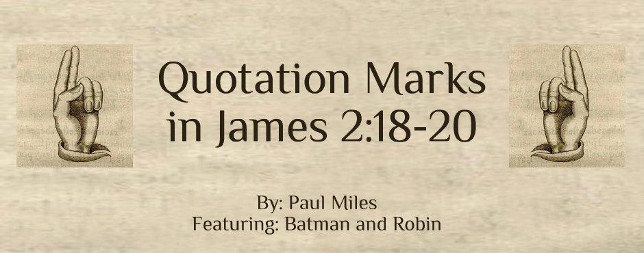By Paul Miles
Some debate has arisen over the location of some certain quotation marks in James 2:18-20 that deserves our attention.
The quotation marks were not in the original letter that James wrote. Quotation marks, lower case letters, spaces, and punctuation were all added to the Greek language long after James wrote. So, the original letter that James wrote would have looked something like this:
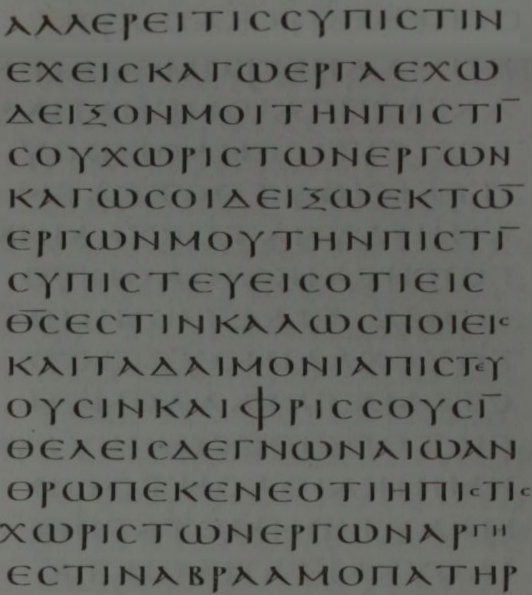
"John saw a man on the mountain with a telescope."
Who had the telescope? It's ambiguous. So, in English, we would either say, "With a telescope, John saw a man on the mountain" or "On the mountain, John saw a man that had a telescope." Just as English has a way to avoid an ambiguous object, Greek has a certain structure to clarify when certain quotations begin and end. Nonetheless, there is a bit of a debate as to where the quotation marks go. Here is the New King James translation with all quotation marks removed:
But someone will say, You have faith, and I have works. Show me your faith without your works, and I will show you my faith by my works. You believe that there is one God. You do well. Even the demons believe—and tremble! But do you want to know, O foolish man, that faith without works is dead?
James is using a literary device that is common in Greek literature. He sets up a hypothetic objection, then responds with a sharp rebuke. Another example1 can be found in 1 Corinthians 15:35-36:
But someone will say, "How are the dead raised up? And with what body do they come?" Foolish one, what you sow is not made alive unless it dies.
If we were to take the conversation between the hypothetical objector and Paul, and convert it into the popular Batman and Robin meme, it would look like this:
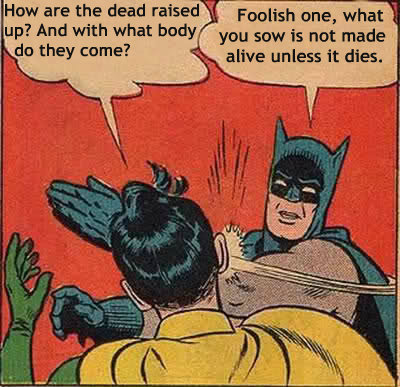
Option A:
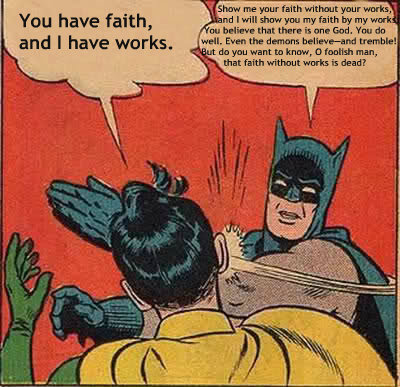
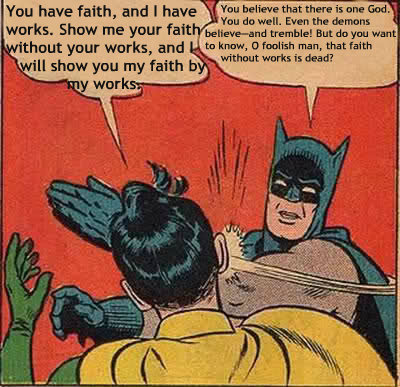
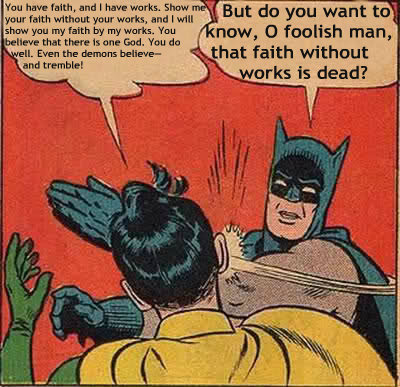
Notice the difference in the three options? Option C is the one that follows the common format. It is also the one that best follows the flow of logic. The argument is that faith cannot be shown through works and the objector considers the case of demons. Demons and James agree that God is one; however, the response is completely different. James (the one the objector is addressing) does good works whereas the demons only shudder.
James' response is not that we can see all faith through good works. Of course not! But, while without works, no one can see faith, faith and works together can provide a great testimony to others. To illustrate this point and further address the objector (who comes from the Jewish audience), James gives an example from the life of a Jewish hero, Abraham. Abraham "believed God and it was accounted to Him for righteousness" in Genesis 15. Abraham did not earn this justification through works but received it through faith. In Genesis 16, he commits his sin with Hagar. In Genesis 20 he hands his wife over to king Abimelech out of a lack of faith. It isn't until Genesis 22, seven chapters after Abraham was justified before God, that Abraham does a good work and becomes known among men as a friend of God. The first justification was by faith and the result was justification in the eyes of God that resulted in righteousness being reckoned to Abraham. The second justification was by works and the result was justification in the eyes of men that resulted in Abraham being called the friend of God.
And so, the big point here is that there are two separate justifications: one by faith (justification before God), and one by works (justification before man). A common theological error today is to take both justifications and mash them together into one. Doing so makes works before man a condition for justification before God. Often, when folks point out that justification before God is by faith alone, people respond, "But, even the demons believe." This popular response is not James' point, but rather, the point of the foolish objector. That's right, if we say, "Even the demons believe" in response to the Gospel, then we are quoting a fool. This does not, however, under any circumstances, give a Christian the right to deliver a Batman slap to the objector's face.
Keep it bold, but keep it graceful, my brothers and sisters.
1 For even more examples of similar structure, check out Romans 9:19-20; the pseudepigraphal 4 Mac 2:24-3:1; or The Shepherd of Hermas 3:8,9.2 Bold Grace Ministries does not endorse the slapping of idiots.
